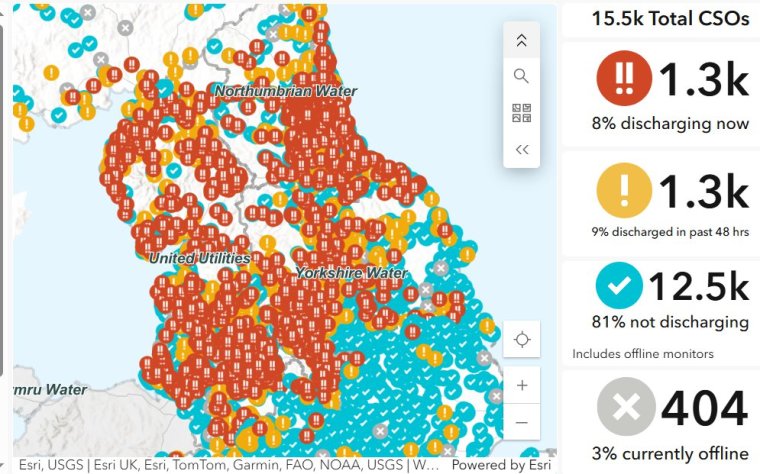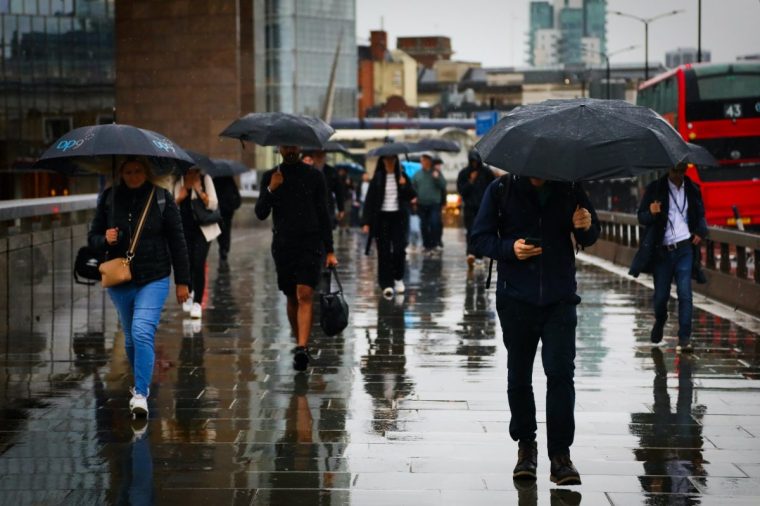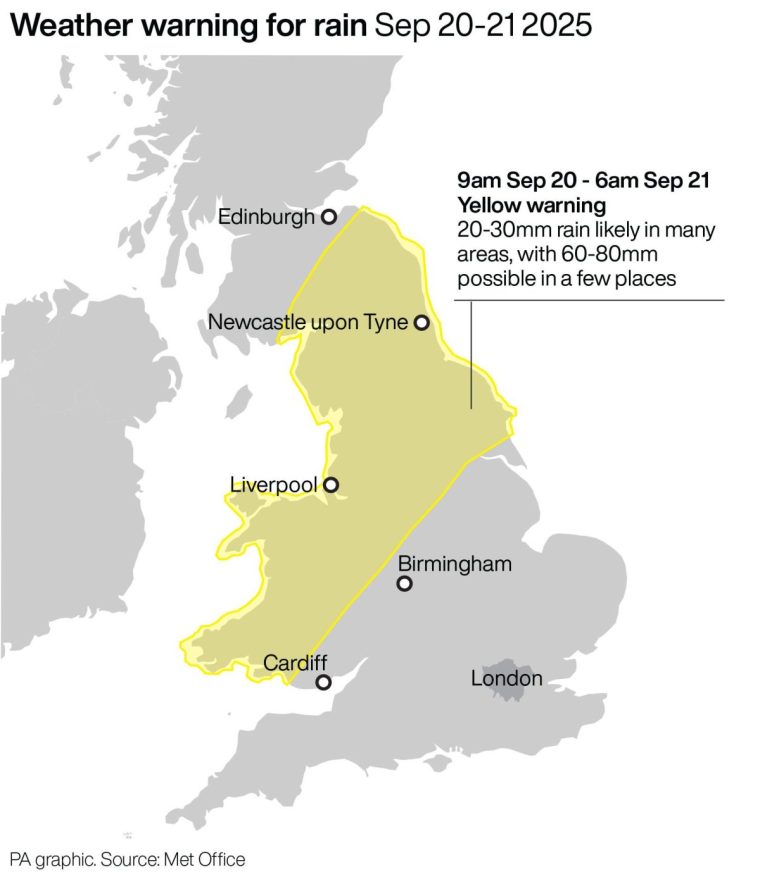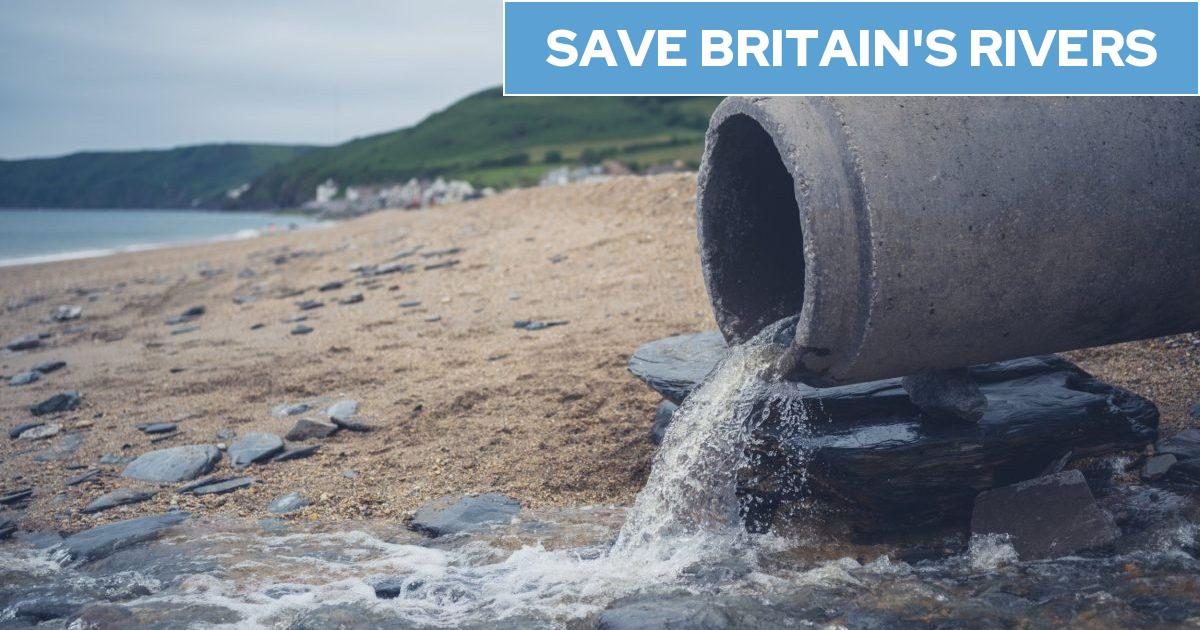Sewage discharges have occurred at hundreds of locations across the UK after heavy rain and strong winds hit the country.
At the time of writing, data from The Rivers Trust stated there were 1,300 storm overflows discharging sewage across the UK, particularly in the south west and north of England.
The environmental charity also found there had been 1,400 discharges in the past 48 hours.
Each discharge alert means there could be sewage in the corresponding section of the watercourse.
 The data is based on EDM monitors fitted to overflows (Photo: The Rivers Trust)
The data is based on EDM monitors fitted to overflows (Photo: The Rivers Trust)
The data is based on EDM monitors fitted to overflows, which measure the level of sewage.
Storm overflows are used to prevent sewers flooding homes, gardens and streets and are used to divert some of the rainwater and untreated sewage water into watercourses. Water companies are permitted to activate them at times of heavy rain to alleviate the strain on the system.
The latest data comes after an Environment Agency report published in July found serious water pollution incidents increased 60 per cent in 2024.
And The Guardian reported a record 50 per cent more untreated sewage was discharged into rivers in England by Thames Water in 2024, compared with the previous 12 months,
The Met Office issued a yellow warning for rain which has been in place from 9am today (19 September) to 6am tomorrow.
The warning covers parts of the East Midlands, West Midlands, North East, North West, Yorkshire and Humber, south-west Scotland and Wales.
Another yellow weather warning for wind, covering Wales and the Midlands is also in place, from 3pm today to 4am on Sunday.
 The Met Office has issued a yellow warning for rain (Photo: Getty Images Europe)
The Met Office has issued a yellow warning for rain (Photo: Getty Images Europe)
Gusts of 50-60mph inland and 65-75mph in some coastal regions are expected.
Up to 80mm of rain is also expected this weekend and forecasters have warned the bad weather increases the risk of flooding and travel disruption.
Tom Crabtree, Met Office deputy chief meteorologist, said: “Through this period, 20-30 mm of rain is expected to fall widely, with some locations perhaps seeing 60-80 mm, with much of this total falling in just a few hours.
“From mid-Saturday onwards, increasingly strong gusty winds and perhaps some thunder will also accompany the rainfall, further increasing the risk of disruption.”
 The yellow weather warning for rain (Photo: PA)
The yellow weather warning for rain (Photo: PA)
Strong winds are also likely in southwest England, western Wales and later, parts of the northeast.
The rain warning covers the north east and north west of England, south west Scotland and the Lothian Borders, most of Wales, the West Midlands and Derbyshire, Yorkshire and Humber.
The far south east of England is expected to escape the worst of the weather, and will mainly remain dry on Saturday.
Scotland is expected to experience a mix of sunny spells and showers, while Northern Ireland will get more persistent and possible heavier rain.
Sewage was spilled 450,398 times from the more than 14,000 “overflow” points in the sewerage network in 2024, according to official figures.
Data also found raw sewage was poured into rivers, lakes and seas in England for 3.6 million hours last year.
Sewage spills are typically triggered when a company’s network becomes overwhelmed by rainfall.
Water companies and government officials have consistently blamed the weather for the sewage crisis, however companies have also been found to spill illegally in dry weather.
How is the government tackling the sewage crisis.
Labour was elected last year on a promise to “end the sewage crisis once and for all”.
The Government is attempting to tackle the problem through its Water (Special Measures) Bill, which means water companies are slapped with tougher fines and sanctions if they are responsible for sewage spills.
The bill has four key aims – block bonuses for water company executives “who pollute our waterways”, bring criminal charges against “persistent law breakers”, to impose automatic and “severe” fines for wrongdoing, plus enable independent monitoring of every sewer overflow outlet.
The bill also gives the Government powers to pursue personal criminal liability charges against executives.
The payment of water bosses’ bonuses will be banned when environmental standards are not met and a new code of conduct will be introduced for firms so customers can summon board members and hold executives to account.
The Government, in partnership with investors, has secured funding to rebuild the country’s water network in a bid to clean up rivers.
A record £104 billion is being invested to upgrade crumbling pipes and build new sewage treatment works cutting sewage pollution into rivers.
Over the past year, the Government has introduced a package of measures to slash pollution levels, such as ringfencing bills to force companies to invest in upgrades and more than £100 million of water fines are being spent on local clean-up projects.
The Independent Water Commission (IWC) was established by the Government in October 2024 in response to growing public concern about sewage spills and rising bills.
In July the WC published its review into England and Wales’ troubled water sector, which outlined 88 recommendations to the UK and Welsh governments to turn around the ailing industry.
After it was published the Goverment scrapped water regulator Ofwat and replaced it one body for England and Wales – one of the ICW’s recommendations.
The new watchdog is expansion of the Consumer Council for Water’s role and will bring the water sector into line with other utilities that have legally binding consumer watchdogs.
After the report was published, Environment Secretary Steve Reed pledged that sewage pollution from water companies will be cut in half by the end of the decade.
